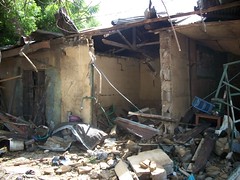Background
The Honourable Minister of Petroleum Resources, driven by the need to strengthen the institutions responsible for Petroleum Revenue Management, commissioned the Petroleum Revenue Special Task force (PRSTF) on 28 February 2012. The goal of the Task Force was to support the programme of the Federal Government of Nigeria in enhancing optimization, probity and accountability in the operations of the Petroleum Industry.
As part of this agenda and the issues arising from the various fiscal regimes existing in the sector, there arose an urgent need to establish the streams of revenue flows from the Petroleum sector to the Federal Republic of Nigeria and design systems and processes which would enhance the accountability of each agency or entity.





















![SPACES FOR CHANGE [S4C]](https://blogger.googleusercontent.com/img/b/R29vZ2xl/AVvXsEhKYqElpL53emtcZ76qeUprKLRrzSYITGwEHQoB5t0ecWyrq6mJa-f6LDcg5M50joQenZ405UhZbpf4UYunBWIBVV1npmtN5svWh5VamC6wd8YRs9Pg_VBsAm5w-sjf_pWJovv7bt4cO0U/s1600/S4C.jpg)